

— Products —
 Consumer hotline +8618073152920
Consumer hotline +8618073152920 WhatsApp:+8615367865107
Address:Room 102, District D, Houhu Industrial Park, Yuelu District, Changsha City, Hunan Province, China
All products
Soil pH sensor is a device used to measure soil acidity and alkalinity. It usually consists of two electrodes: a reference electrode and a working electrode. The reference electrode is usually a silver/silver chloride electrode, which provides a stable potential as a reference point. The working electrode is usually a glass electrode which is in contact with the soil and measures the pH of the soil. When the concentration of hydrogen ions in the soil changes, a chemical react···
Tel/WhatsApp:+8615367865107
Email:Arvin@niubol.com +Nearly 100 partner company in more than 68 countries. We are committed to providing high-quality, practical products to meet your needs and help you solve problems.Product Details
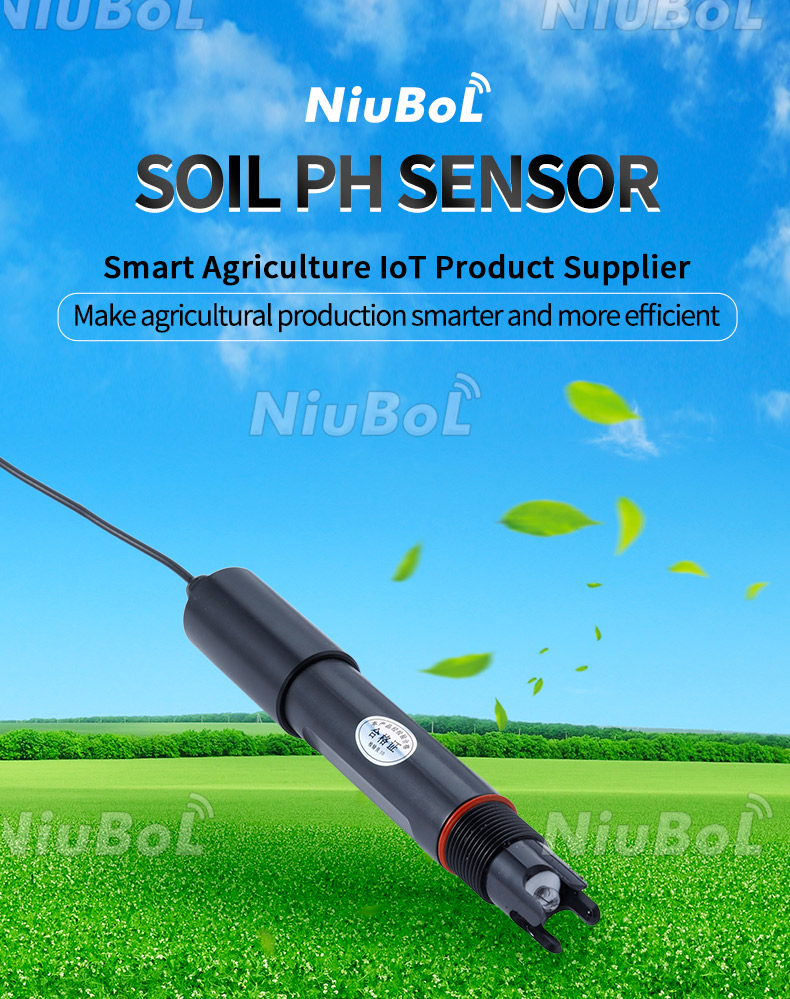
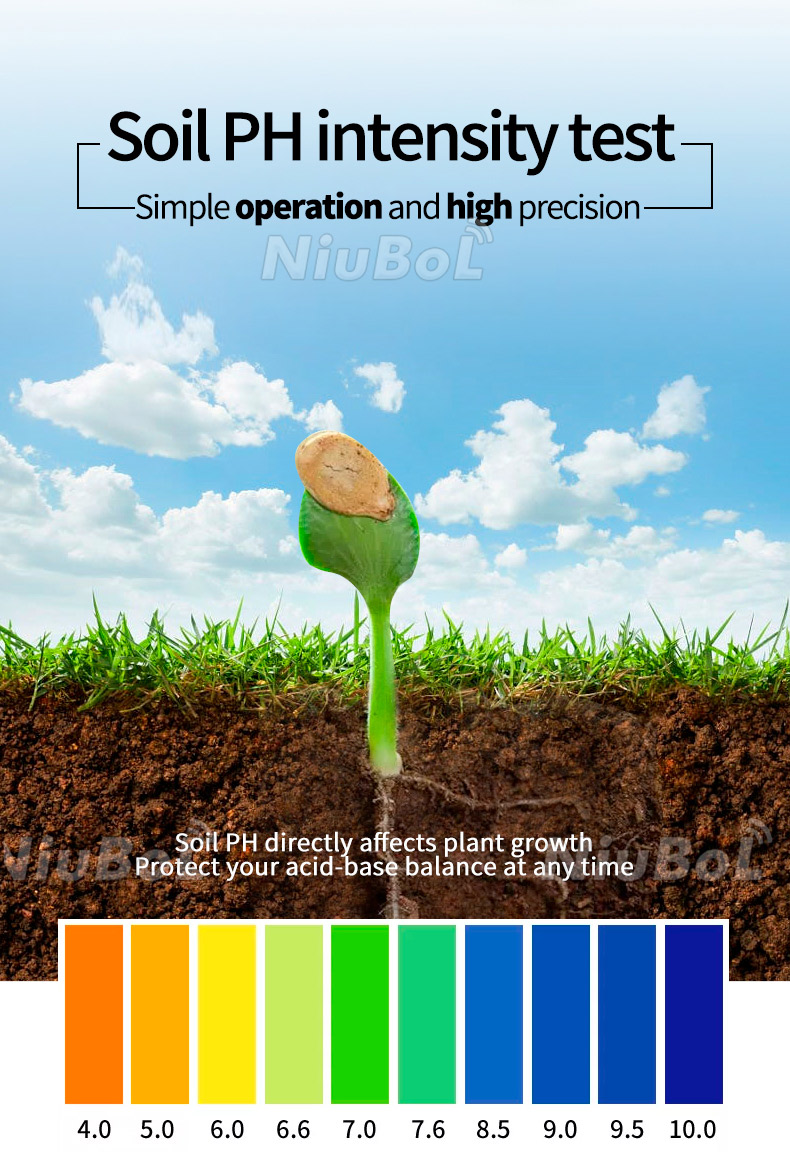
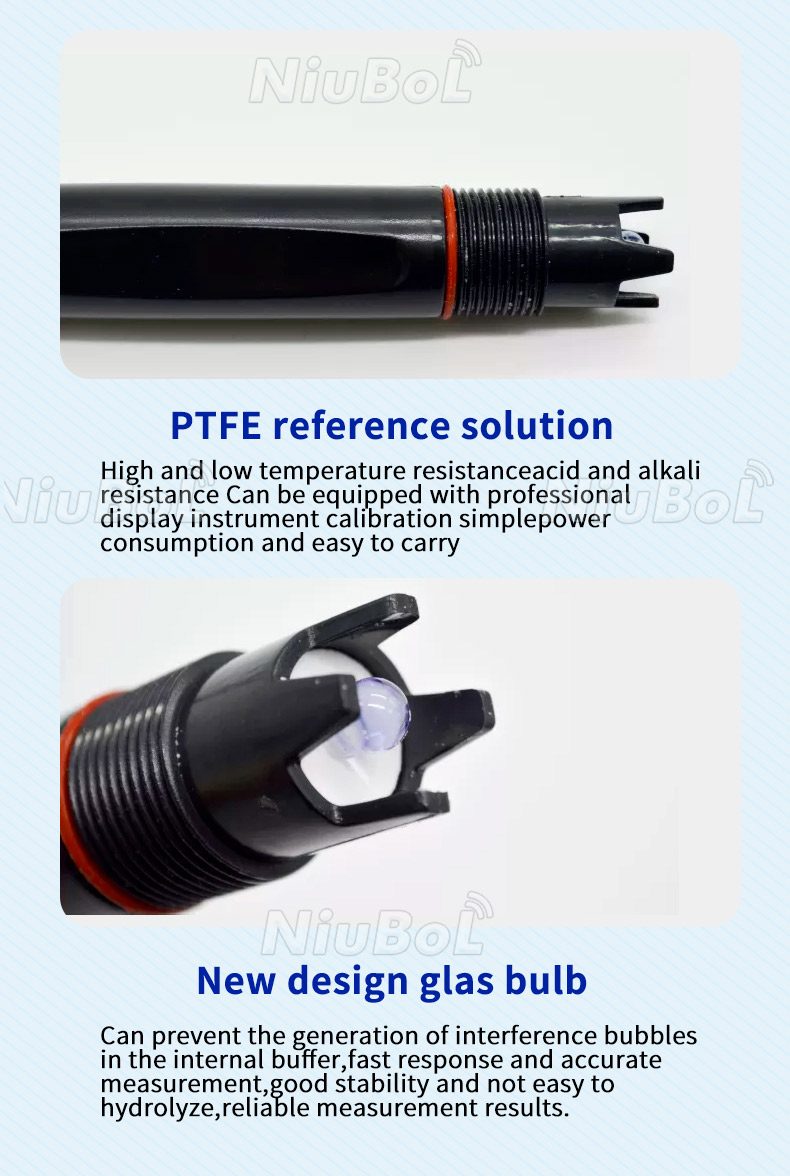
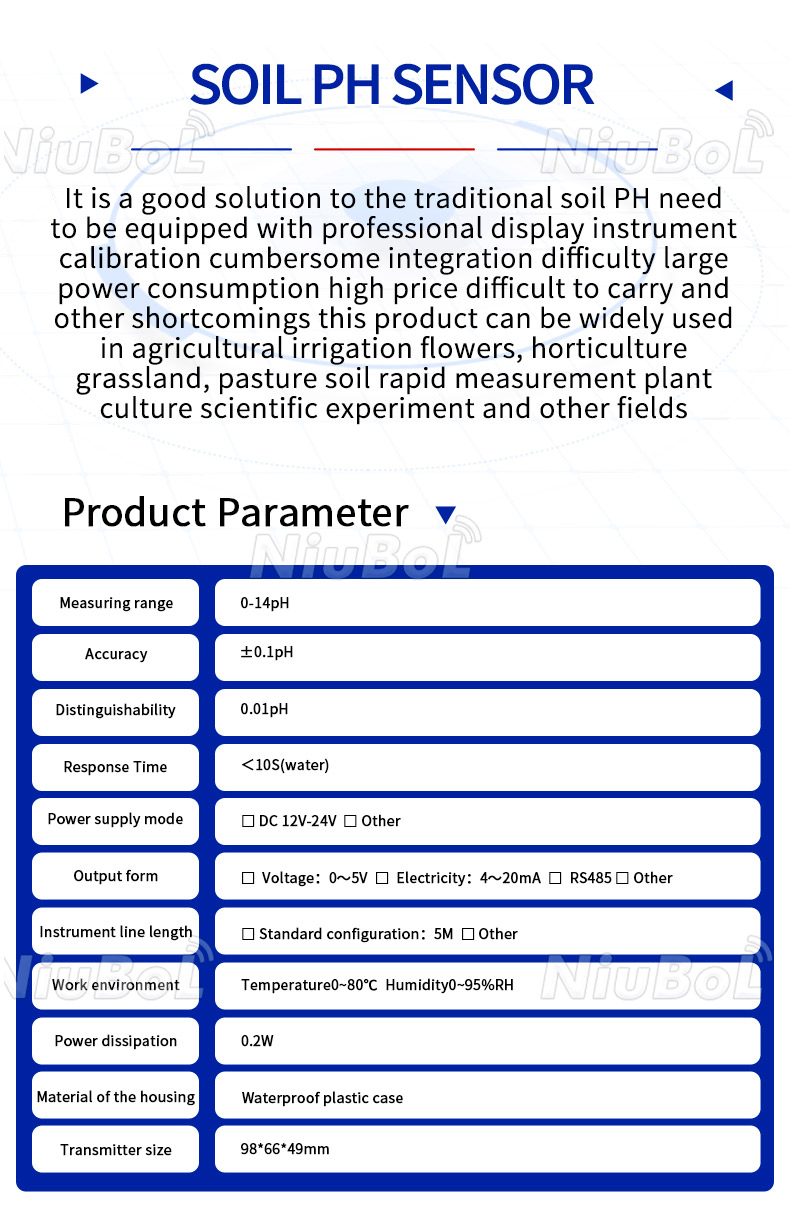
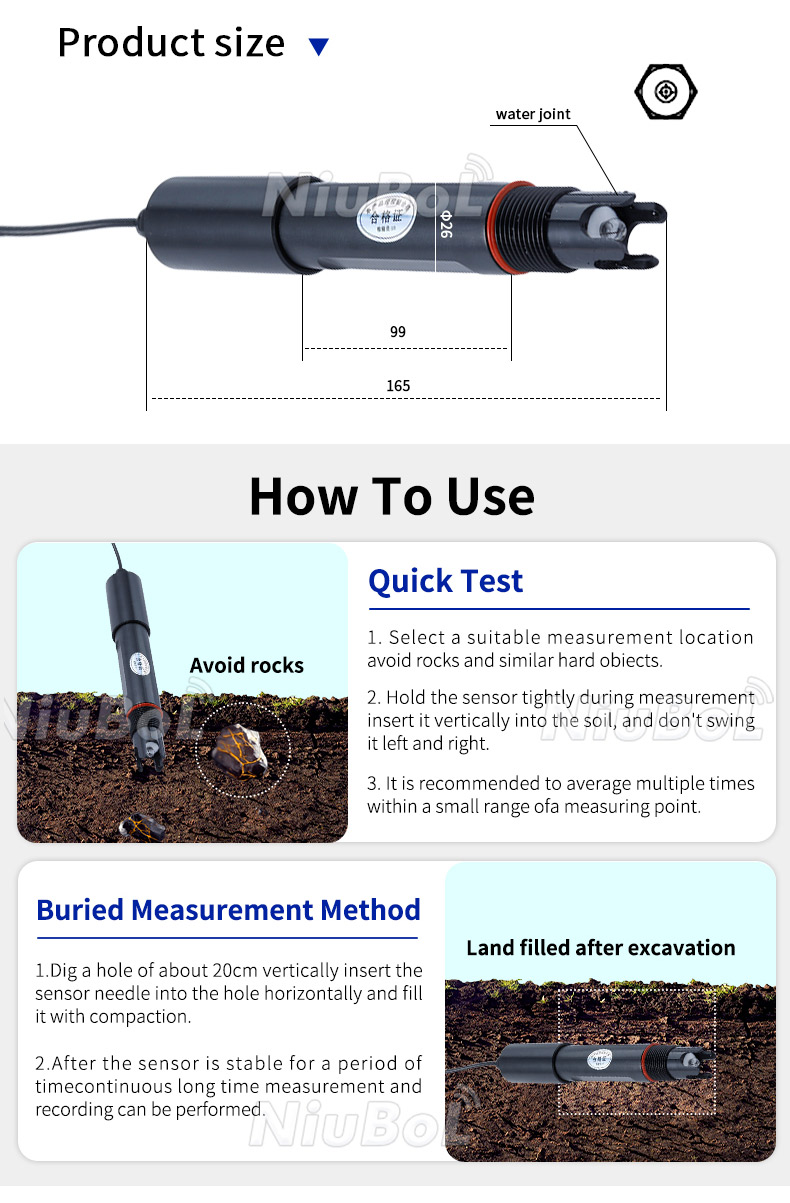
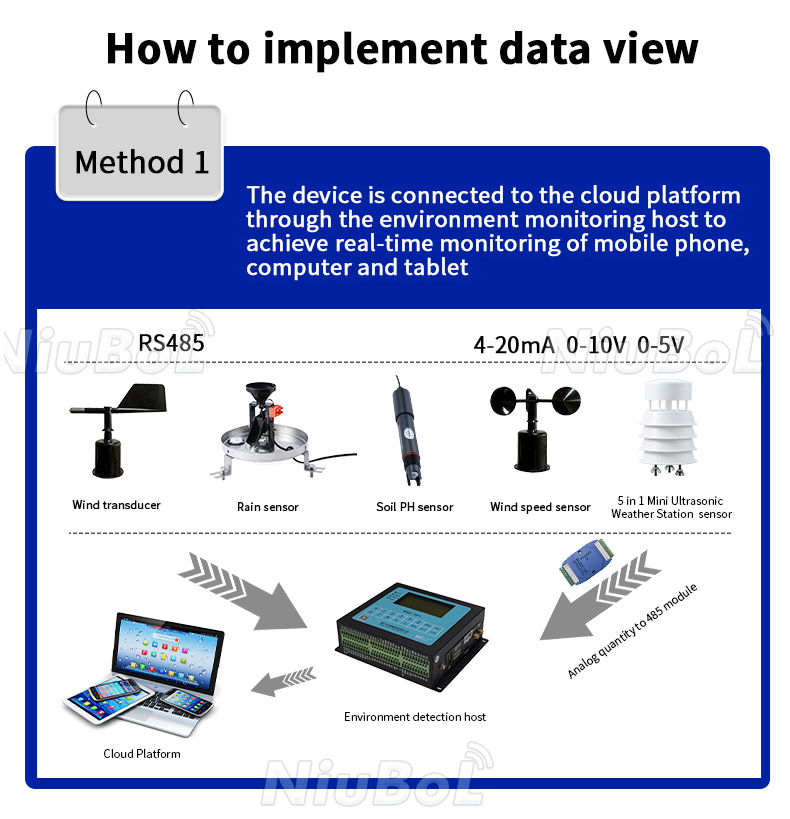
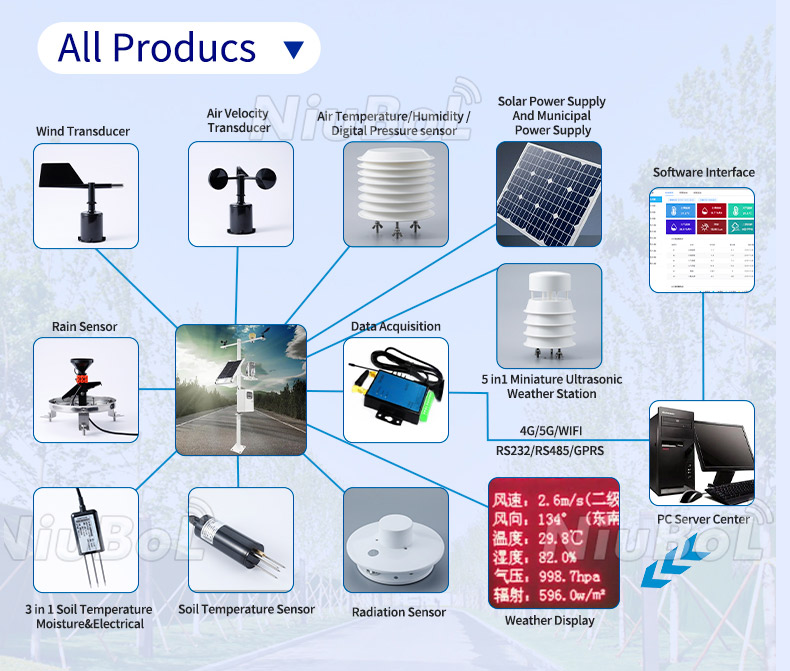
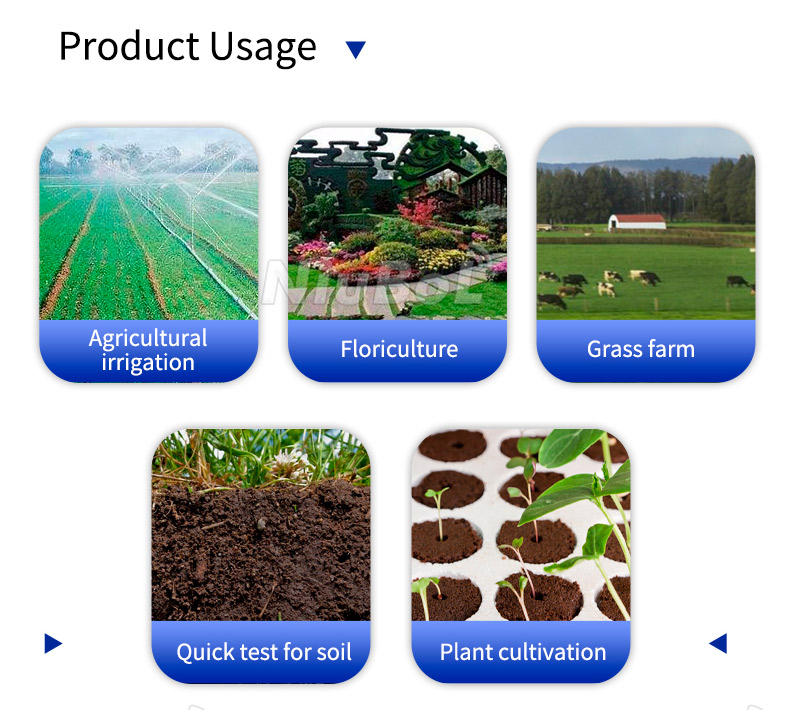
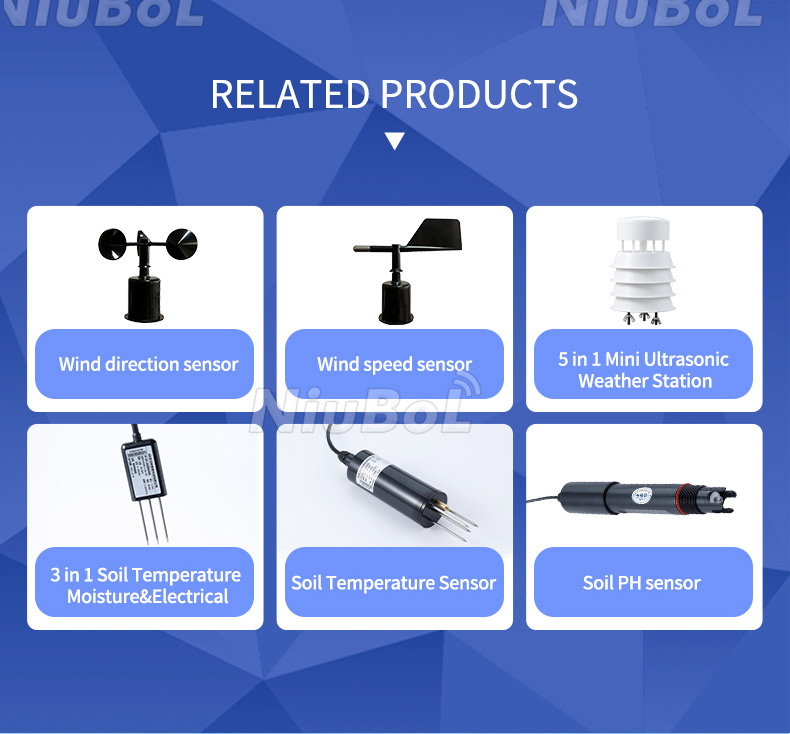
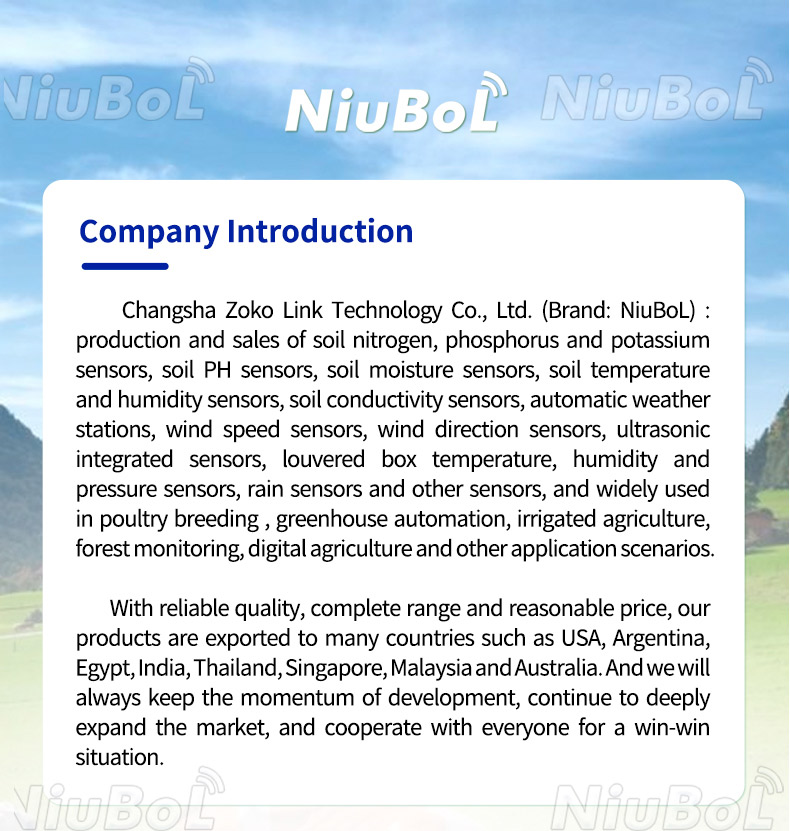

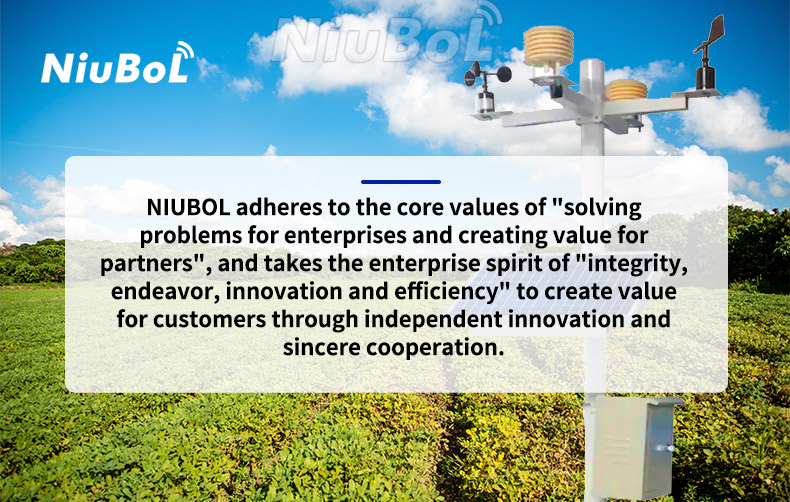
Soil pH sensor is a device used to measure soil acidity and alkalinity. It usually consists of two electrodes: a reference electrode and a working electrode. The reference electrode is usually a silver/silver chloride electrode, which provides a stable potential as a reference point. The working electrode is usually a glass electrode which is in contact with the soil and measures the pH of the soil. When the concentration of hydrogen ions in the soil changes, a chemical reaction occurs between the glass electrode and the soil, and this reaction causes a change in the potential on the surface of the glass electrode. The sensor determines the pH of the soil by measuring this change in potential. By using the soil pH sensor, people can keep abreast of the soil's acidity and alkalinity, so that they can take appropriate measures to regulate the soil's pH to meet the needs of different plants.
The working principle of soil pH sensor is based on electrochemical measurement technology, which mainly involves glass electrode and ion selective electrode.
Glass electrode: The key component in a soil pH sensor is the glass electrode. The glass electrode usually consists of a glass membrane sphere and an internal reference electrode. The glass membrane sphere is made of a special glass material which contains a special glass solution. This glass solution has the ability to react with hydrogen ions (H+) in the soil.
Ion Selective Electrodes: In addition to glass electrodes, soil pH sensors may also contain ion selective electrodes. An ion-selective electrode is an electrode that is designed to measure the concentration of specific ions. In soil pH sensors, ion-selective electrodes are primarily used to measure the concentration of hydrogen ions in the soil.
When the soil pH sensor is inserted into the soil, the glass electrode comes into contact with the soil and the glass solution inside the glass membrane sphere reacts with the hydrogen ions in the soil. This reaction produces an electrical potential that is proportional to the hydrogen ion concentration in the soil. At the same time, the ion-selective electrode measures the hydrogen ion concentration in the soil and generates another potential. By measuring the difference between these two potentials, the soil pH sensor can determine the acidity or alkalinity, or pH, of the soil.
The circuitry inside the sensor converts the potential difference into a digital signal that displays or records the soil's pH via a connected display or data acquisition device. It is important to note that soil pH sensors need to be calibrated periodically in order to ensure accurate measurements. The calibration process will use a standard buffer (a liquid with a known pH value) for comparison to ensure the accuracy and precision of the sensor.
Soil ph sensor has a wide range of applications in many fields, the following are the main application scenarios and its role value:
Agricultural field: In agricultural production, soil pH has an important impact on the growth and development of crops. Different crops have different requirements for soil pH, so it is very important to know the soil pH in time. By using soil pH sensors, farmers or horticulture enthusiasts can keep abreast of the soil's acidity and alkalinity so that they can take appropriate measures to regulate the soil's pH to meet the needs of different plants. This helps to improve crop yield and quality while reducing the use of chemical fertilizers and pesticides.
Land improvement field: soil pH sensors can also be used in the field of land improvement. When soil pH is found to be unstable, changes in soil pH can be monitored, and appropriate measures can be taken to regulate the pH of the soil in order to improve the land environment and increase the output efficiency of the land.
Environmental monitoring field: soil pH sensor can also be used in the field of environmental monitoring. In some environmental pollution events, the pH of the soil may change. Through the use of soil pH sensors, changes in soil acidity and alkalinity can be monitored in a timely manner, thus helping people to understand the environmental conditions and take appropriate measures.
pH sensors for soil play a crucial role in smart agriculture by providing valuable information about the acidity or alkalinity of the soil. Here's how they contribute to the effectiveness and value of smart agriculture:
1. Optimal nutrient management: pH sensors help farmers determine the soil's pH level, which is essential for understanding nutrient availability. Different crops have specific pH requirements for optimal growth. By using pH sensors, farmers can adjust the soil's pH through appropriate fertilizer applications, ensuring that plants receive the necessary nutrients for healthy growth.
2. Precision irrigation: pH sensors provide insights into soil acidity, which affects water availability and nutrient absorption. By monitoring pH levels, farmers can fine-tune their irrigation systems to ensure the proper delivery of water and nutrients to the plants. This precision irrigation helps conserve water resources while maximizing crop yield.
3. Disease and pest management: Soil pH influences the occurrence of diseases and pests. pH sensors enable farmers to detect and address imbalances early on, preventing the proliferation of pathogens and pests. This proactive approach reduces the need for excessive pesticide use, resulting in cost savings and environmental benefits.
4. Soil health monitoring: pH sensors contribute to monitoring overall soil health. By regularly measuring soil pH, farmers can assess changes in acidity levels over time. This information assists in identifying trends, making informed decisions regarding soil amendments, and implementing sustainable agricultural practices.
5. Data-driven decision-making: pH sensors generate data that can be integrated into smart agriculture systems. By combining pH measurements with other environmental and crop data, farmers can gain insights into the relationships between soil conditions and plant performance. This information enables data-driven decision-making, helping optimize resource allocation, crop management strategies, and overall farm productivity.
In summary, pH sensors for soil are vital components of smart agriculture. They provide real-time data on soil pH, empowering farmers to make informed decisions regarding nutrient management, irrigation, disease prevention, and overall soil health. By leveraging this information, smart agriculture systems can enhance crop production efficiency, resource conservation, and sustainable farming practices.
Sensors & Weather Stations Catalog
Agriculture Sensors and Weather Stations Catalog-NiuBoL.pdf
Weather Stations Catalog-NiuBoL.pdf
Related recommendations
 Multi-Depth Soil Sensor RS485
Multi-Depth Soil Sensor RS485 TDR Soil Moisture Sensor
TDR Soil Moisture Sensor Pyranometer Solar Radiation Sensors
Pyranometer Solar Radiation Sensors Soil ph sensor
Soil ph sensor Tipping Bucket Rain Gauge
Tipping Bucket Rain Gauge Air Temperature and Humidity Sensor
Air Temperature and Humidity Sensor
Screenshot, WhatsApp to identify the QR code
WhatsApp number:+8615367865107
(Click on WhatsApp to copy and add friends)
